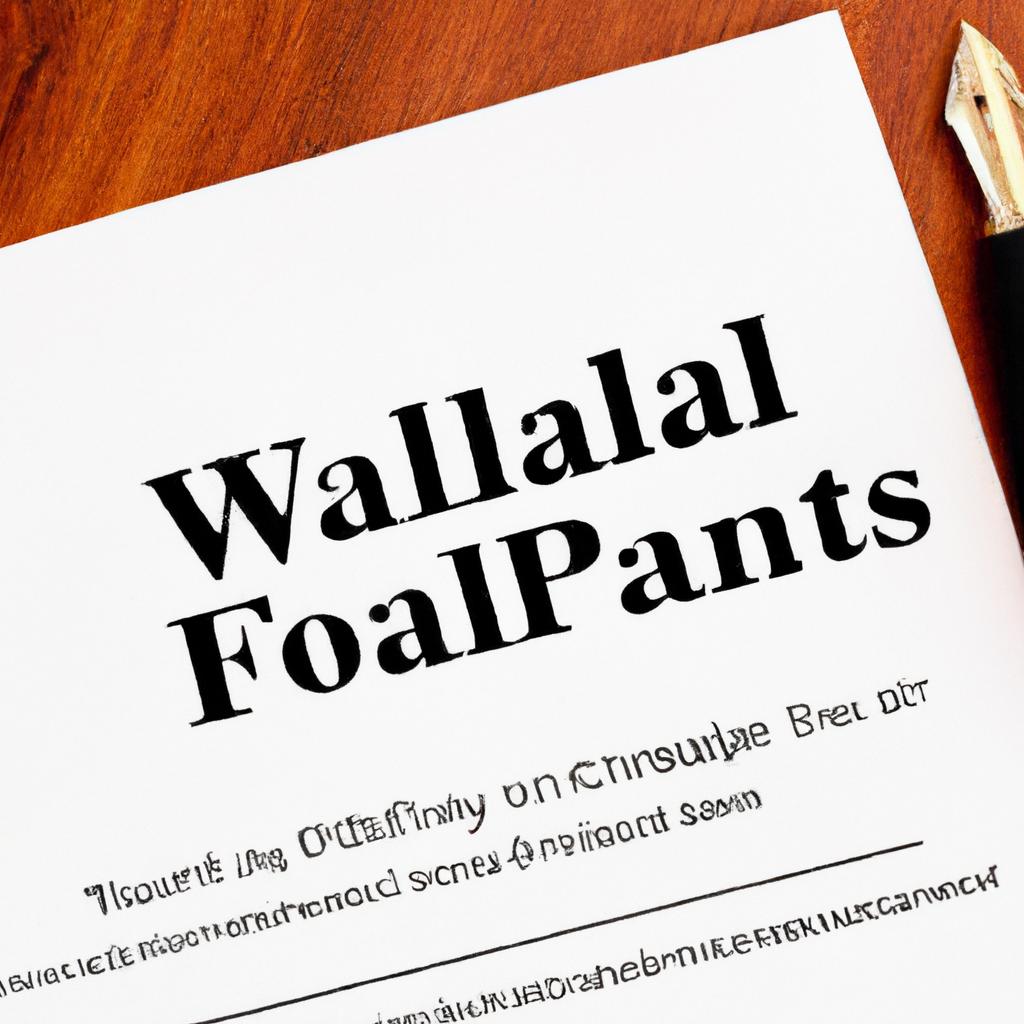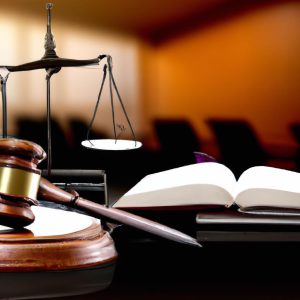As seasoned legal practitioners at Morgan Legal Group, a premier firm in New York City specializing in estate planning, probate, elder law, Wills, and trusts, we understand the complexity and importance of drafting a last will and testament. For individuals residing in Washington State, the question often arises: ”Can I write my own will?” In this article, we delve into the intricacies of creating a legally valid will in Washington State, navigating the specific requirements and considerations that must be taken into account. Join us as we explore the nuances of DIY wills in Washington State and provide essential guidance for those seeking to protect their assets and loved ones through meticulous estate planning.
Estate Planning in Washington State: Understanding the Legal Requirements for Writing Your Own Will
Considerations for Writing Your Own Will:
- Ensure that you meet the legal requirements in Washington State, such as being over the age of 18 and of sound mind.
- Clearly outline your wishes for the distribution of your assets, including specific items, monetary gifts, and property.
- Designate an executor to carry out the instructions in your will and consider naming alternate executors in case the primary choice is unable to fulfill the role.
- Take into account potential challenges or disputes that may arise among beneficiaries and address them in your will to minimize conflicts.
Benefits of Seeking Legal Assistance:
- A skilled estate planning attorney can provide guidance on complex legal matters and ensure that your will complies with all state laws.
- Legal professionals can offer insights on strategies to minimize taxes and protect your assets for future generations.
- Working with an attorney can help you avoid common pitfalls and errors that may lead to disputes or challenges to your will after your passing.
- Professional assistance can provide you with peace of mind knowing that your wishes will be carried out according to your intentions.

Key Considerations for Drafting Your Own Will in Washington State
When considering drafting your own will in Washington State, there are several key considerations to keep in mind to ensure that your wishes are accurately reflected and legally binding. It is important to understand the specific laws and requirements governing wills in Washington State to avoid any potential challenges or disputes down the road.
:
- Consult with an experienced attorney to ensure compliance with state laws and regulations.
- Clearly identify and designate beneficiaries for your assets and property.
- Specify an executor to manage the distribution of your estate.
- Consider including provisions for alternate beneficiaries in case your primary beneficiaries predecease you.

Potential Pitfalls to Avoid When Writing Your Own Will in Washington State
In Washington State, it is possible to write your own will without the assistance of a lawyer. However, there are several potential pitfalls that individuals should be aware of when taking on this task.
<ul>
<li><b>Lack of Legal Knowledge:</b> Writing a will requires a deep understanding of estate planning laws and regulations. Without this knowledge, individuals may inadvertently create a will that does not comply with state requirements.</li>
<li><b>Ambiguity:</b> Vague language or unclear instructions in a self-written will can lead to confusion and disputes among beneficiaries. It is essential to be precise and detailed in outlining the distribution of assets and property.</li>
</ul>
Consulting with an Experienced Attorney for Writing Your Will in Washington State
When it comes to the important task of writing your will in Washington State, it is always advisable to consult with an experienced attorney who specializes in estate planning. While it is possible to write your own will, working with a knowledgeable lawyer can ensure that your wishes are properly executed and legally binding. Here are some reasons why seeking professional guidance is beneficial:
- Legal Expertise: An experienced attorney will have a thorough understanding of Washington State laws and requirements for drafting a valid will.
- Customized Advice: A lawyer can provide personalized guidance based on your unique circumstances and help you make informed decisions about your estate plan.
- Complex Situations: If you have a complex family structure, significant assets, or special considerations, a lawyer can help navigate these complexities and ensure your will accurately reflects your wishes.
Q&A
Q: Can I write my own will in Washington State?
A: Yes, you can write your own will in Washington State, but it is recommended to seek legal advice to ensure it meets all legal requirements.
Q: What are the legal requirements for a will in Washington State?
A: In Washington State, a will must be in writing, signed by the testator (person making the will), and witnessed by at least two competent individuals who are not beneficiaries.
Q: Can I revoke or change my own will in Washington State?
A: Yes, you can revoke or change your own will in Washington State at any time by creating a new will or adding a codicil to your existing will.
Q: What happens if I die without a will in Washington State?
A: If you die without a will in Washington State, your assets will be distributed according to state intestacy laws, which may not align with your wishes.
Q: Is it advisable to use an online will-writing service in Washington State?
A: While online will-writing services can be convenient, it’s recommended to consult with a legal professional to ensure your will is legally valid and accurately reflects your wishes.
Concluding Remarks
In conclusion, while it is possible to write your own will in Washington state, it is highly recommended to seek professional guidance to ensure that your wishes are accurately and legally documented. By consulting with an experienced estate planning attorney, you can ensure that your final wishes are carried out in the way you intended. Remember, your will is an important document that affects the future of your loved ones, so it is important to take the necessary steps to ensure it is properly executed. Thank you for reading and we wish you the best in your estate planning journey.
 Navigating the legalities surrounding creating your own will can be overwhelming, especially with varying laws in different states. If you’re a resident of Washington State, you may be wondering: can I write my own will in Washington State? The short answer is yes, but there are important factors to consider before taking on this task. In this article, we’ll explore the process of writing your own will in Washington State, the potential pitfalls to avoid, and the benefits of consulting a professional.
Navigating the legalities surrounding creating your own will can be overwhelming, especially with varying laws in different states. If you’re a resident of Washington State, you may be wondering: can I write my own will in Washington State? The short answer is yes, but there are important factors to consider before taking on this task. In this article, we’ll explore the process of writing your own will in Washington State, the potential pitfalls to avoid, and the benefits of consulting a professional.
Understanding the Legal Requirements in Washington State
Before drafting your own will, it’s crucial to understand the legal requirements in Washington State. According to Washington State law, a will must be in writing and signed by the testator (the person creating the will) in the presence of at least two witnesses. These witnesses must also sign the will in the presence of the testator. Additionally, the testator must have testamentary capacity, meaning they must be of sound mind and at least 18 years old.
It’s important to note that if the will is not properly signed and witnessed, it may be considered invalid and could result in your assets being distributed according to state probate laws instead of your intended wishes.
Creating a Valid Will in Washington State
While it is possible to write your own will, it’s crucial to ensure that it is valid and legally binding. To do so, follow these steps:
1. Identify yourself and your intention to create a will: Begin by stating your full name and that you are of sound mind and over the age of 18. State that the document is your last will and testament.
2. List your assets and beneficiaries: Clearly list all of your assets, including real estate, bank accounts, investments, and personal belongings. Next, specify how you want these assets to be distributed and who the beneficiaries will be. Be sure to use full names and include any necessary details, such as alternate beneficiaries or conditions for inheritance.
3. Appoint an executor: An executor is responsible for managing your estate and carrying out your wishes. Choose someone you trust and list their full name and contact information in your will.
4. Sign and date the will with two witnesses: After thoroughly reviewing your will, sign and date it in the presence of two witnesses. These witnesses must also sign and date the will in your presence to make it legally binding.
Benefits of Writing Your Own Will in Washington State
1. Cost Savings: One of the most significant benefits of writing your own will in Washington State is the potential cost savings. Hiring an attorney to draft your will can be expensive, and if your estate is relatively simple, it may not be necessary.
2. Personalization: By writing your own will, you have full control over what happens to your assets after you pass away. You can specify how you want your assets to be divided and include any specific requests or conditions.
3. Convenience: Writing your own will in the comfort of your own home and on your own schedule can be more convenient than going through the process with an attorney.
Potential Risks of Creating Your Own Will
1. Lack of Legal Expertise: While it may seem simple to draft a will, there are legal intricacies that may be overlooked by someone without legal expertise. This could result in a will that is not valid or does not fully reflect your wishes.
2. Mistakes in Language: Proper legal language is crucial in wills to avoid any ambiguity or misinterpretation. Failure to use the right language could lead to confusion or disputes among your beneficiaries.
3. Excluding Important Information: In an attempt to keep things simple, you may overlook including important details in your will, such as naming a guardian for minor children or addressing tax implications for certain assets.
Consulting a Professional for Your Will in Washington State
While it is possible to write your own will in Washington State, consulting a professional can help ensure that your will is valid, accurate, and reflects your true intentions. An estate planning attorney or a licensed online will service can provide you with expert guidance and assistance throughout the process. Additionally, an attorney can advise on any unique considerations, such as blended families, business ownership, or complex assets.
In Conclusion
Creating a valid and legally binding will in Washington State can be a complex process, but it is possible to write your own will if you follow the necessary steps and consult a professional if needed. By understanding the legal requirements, potential risks, and benefits, you can ensure that your assets are distributed according to your wishes and minimize any potential complications for your loved ones during an already difficult time. Don’t hesitate to seek professional guidance to ensure that your last wishes are carried out as intended.






